how it's all gonna go down
straight talk at the buzzer
MJs famous three pointer at the buzzer. Not sure we’re such good shots?
***
Most of the time, I take much longer wind-ups at much smaller pieces of the “Polycrisis Puzzle.”
Trying to stick with the maxim “disillusion people at a rate they can handle!” Add in enough funny hashtags and colorful backstories, and folks don’t even realize they’re getting purple pilled.
Defusing our consensus trance one snipped wire at a time.
But in the last month I’ve given a couple of talks to well-intentioned existential risk conferences and that forced me to try and distill a bunch of thinking into some more Tl;DR kind of bullet points.
Sorry for not unpacking each of these in detail, with all of the arguments and evidence they deserve. But for now, just know that I’m not saying any of these off the cuff, or without awareness of how they might land emotionally.
These are considered conclusions based on thirty years of research inside and outside academia, and current prep for the next book I’m writing. I will be giving them more rigorous treatments in the coming months.
But for now,
Ten points about the polycrisis to ponder…
#1: we could, but we ain’t.
(this one kind of sums up all the rest)
Could we Visualize Whirled Peas, heal our planet, feed the world, and usher in the next chapter of a joyful human renaissance? Could we invent our way into abundance, govern ourselves to peace and equity? Could we not just maintain, but even increase our prosperity and standard of living for ten billion souls on this earth? Yeah. It would be a major lift, but in no way impossible. We’re that ingenious! If we simply turned off social media and reinvested every penny we currently spend on war and non-essential consumer consumption, and put that towards energy, food, housing and ecosystem restoration, we could get there in half a century. But we likely ain’t gonna. And that sucks.
#2: we’re going over the falls in a barrel, wearing what we came in.
No transforming capitalism, reinventing politics or transcending our spiritual limitations to save the day. The very same human nature and culture that got us into this pickle will either undo us or save us in the end. It’s not that we couldn’t make all of those changes. It’s just that we aren’t. At least not in time to change the trajectory of the barrel, or the currents of the river. So we should dispense with any of those grand plans to reimagine civilization to concentrate on sticking the landing. (though those ideas may well come in handy later).
#3: we’re not gonna get off fossil fuels “in time.”
Despite some cool charts showing plunging prices for solar panels, or inspirational stories of net zero power generation from places like Denmark and Costa Rica, we’re going to remain dependent on hydrocarbons for decades to come. Even if we fully electrify our homes and cars, plastics, concrete, steel. silicon chips and synthetic fertilizers will continue to require the energy or the chemistry of fossil fuels (or both).
Best case scenario? We reduce our carbon burn to 30%, we build out renewables to about 30% and we ramp up nuclear (large and small) to about 30%. Remaining 10% will go to one of those three buckets, or to emerging tech that’s not scaled yet (like carbon capture, fusion, fairies, etc) And we’ll take the consequences of those pesky Parts Per Million (PPM) on the chin as an inevitable tradeoff.
#4: we’re going to pay way more to fix stuff after it breaks than it would’ve cost to prevent it from breaking.
From migrant crises to hurricane clean ups to multi-front wars, the knock-on effects of the polycrisis are knocking into each other. And it will likely get worse, and massively more expensive. This is not ideal, but a combination of bad-faith actors deliberately stalling decisive action, inept bureaucratic politics making it nearly impossible to forge consensus, and unhelpful cognitive biases that prevent us from longer term planning vs. short term tradeoffs, are all conspiring to leave us unfit to withstand these trials.
(Kinstugi: great for #Inspo posting. Crap business model. All that golden glue really adds up)
BUT…
#5: we’re flatfuck broke.
It’s been a while since money was directly connected to a universal store of value, like gold. But in the last few decades, with ‘08 bailouts and Covid emergency measures, we’ve decoupled the amount of debt in our system from anything based in the material economy at all. This leaves our financial system deeply vulnerable to disturbances, right at a time when transitioning off fossil fuel exposes us to greater fluctuations in GDP than ever. Think of those eye-watering cost overruns for the “pounds of cure” we’ll be on the hook for vs. the “ounces of prevention” we could’ve chipped in for.
(for perspective, GDP dropped by less than 5% in the Great Recession of 2008, and dropped by around 30% in the Great Depression of the 1930s. There’s literally no math to support transitions to a lower carbon economy that don’t bake in GDP contractions at least in that range)
#6: eight to ten billion humans on this planet isn’t remotely natural.
For millions of years, there were only a few million humans. Two hundred years ago, there were one billion people. In 1930 there were two billion. In 1970 it was four billion. In 2020 we tipped eight. That’s the hockey stick graph to end all hockey sticks. Half of all humans alive today would not be (!!!), were it not for the direct contribution of NPK synthetic fertilizers and pesticides. It’s not that we couldn’t, in theory support ten billion people. We could. It’s just that we can’t do that, and at the same time transition to more expensive, less reliable, less dense energy sources than what got us here in the first place. Acknowledging this simple fact does not make you a hater of humanity. It’s the first step to becoming a humanitarian.
#7: physics trumps metaphysics.
Climate alarmists, climate deniers. Socialists. Libertarians. Hipsters. Preppers. Cryptobros. Gold Bugs. Everyone’s fronting their favorite theories. But none of their elaborate models will hold up WTSHTF. Won’t matter whether your favorite hyperobject (like “climate change” “Late Stage Capitalism” “New World Order” or “Decline of the West”) ever comes true or not. Shit’s gonna start happening harder and faster than the pundits and podcasters can keep up with.
And it’s gonna be a strictly WYSIWYG (what you see is what you get) situation: Food, water, clothing, shelter. With all the knock-on effects of having those basics sorted or not.
Pay less attention to what folks are saying, and more attention to what folks are doing.
#8: there aren’t any simple answers or ways through.
If there were, some meaningful, competent chunk of humanity would already be on them. We’re facing the most complex, chaotic, emergent, dynamic clusterfuck that has ever hit us. By a bazillion. E.O Wilson said “we have paleolithic emotions, medieval institutions and god-like technologies.” But it’s that exact combination that’s created such a devilish predicament. We’re literally not built for this shit. We will all need to set aside hopes for Ta-Da! redemption, and get much better at tolerating highly ambiguous and consequential conditions. For a while. No more quick fixes. Just a bunch of potential patches.
#9: lottery winners will compound their gains.
If you were born WEIRD (western, educated, industrial, rich and democratic) you will be spared the worst, at first. You will, by dint of your geography, passports and disposable income be able to dodge the first waves of dislocation. This won’t hold up indefinitely, and the delicate and eroding nature of the middle class and the collapse of social safety nets will leave many former professionals in bad shape sooner than later.
But for the next few decades, you will see those with the money retreat to gated, guarded enclaves like Johannesburg, Medellin, and Karachi already have, and seasonally migrate to dodge the worst of weather and unrest.
#10 it won’t be all bad, all the time.
Even as most aquifers are depleting right now, about 14% are filling up. Those poor polar bears stranded on ice floes? In three out of five habitats worldwide, their populations are actually increasing. Too much C02 in the air? It’s also prompting reforestation in some regions. Those sinking islands in the South Pacific? Just as many are growing as shrinking and the majority aren’t changing at all (yet).
Just because things are really bad, doesn’t mean that good isn’t also happening. Some of that is due to the tireless work of good people, agencies, institutions, companies and governments, some of its due to the utterly amazing capacity of nature to heal itself, and some of it is the statistically predictable variation within complex systems.
So we may see crop yields go up in Canada even as they dwindle in Arizona. King crab populations go up as Snow Crab populations disappear. Inspiring spiritual movements arise in African refugee camps even as college campuses riot.
BUT…
we’re in a hospice situation here, make no mistake. Like when Grandma first got admitted to the hospital for a broken hip and you thought you’d lose her, only to have her rebound and ask for a chocolate milkshake…to then go back down after a lung infection, to fight back once again and be playing Scrabble with the grandkids. To lose consciousness for her final few weeks, only to snap into crystal clarity for her final moments…that’s what hospice nurses call the “Stair Step.”
There are ups and downs, and in each down you think it’s the end, and with each up, you think you’ll be back to “normal” and Grandma will be back home in no time. But if you track the ups, each one is a step lower than the last one. And each down, gets a little deeper and longer.
There will still be ups, and we should by all means celebrate them to the fullest. But don’t get suckered into believing that we’re ever going back to Normal (if by “normal” you mean the historical fluke of 1945-2015 with virtually free energy, a bi-polar and then uni-polar enforced world peace, exponential population growth and rampant material production in a globally connected supply chain).
#11 Bonus Item: Too Little, Too Late or Just In Time?
Hard saying not knowing. About all of this! For every doom and gloomy observation, there’s green shoots and signs of hope. There are compounding efficiencies as we transition off wasteful internal combustion towards electrification (we waste 70% of a gallon of gas in heat and friction. Electric motors are 90% efficient. We burn 40% of oil and gas transporting oil and gas, etc. So positive tipping points abound if we can get to them).
Nature is continually amazing in its ability to repair and heal. Human inventiveness knows no bounds (treat a resource as its scarce and it becomes abundant, treat it as abundant and it becomes scarce). So the question isn’t “could we?” It’s “but will we?” And in time, before disruption and instability erode our best chances to unfuck things in time.
***
So that’s it. Nothing witty or pithy to wrap up with I’m afraid. But read these over a few times and let each one sink in.
I almost never put a pin in the calendar and try to time short term events.
But
all of these trends have decades to centuries of momentum behind them
So it’s literally not rocket science to pencil in the remainder of their trajectory.
Can you argue each one point by point? Sure. Could you bop on over to Twitter and find dozens of vindications and validations that all of this is doomer alarmist malarkey and I’m out to lunch? Easily.
But I could also give you a reading list of about a hundred books and articles, ranging from Johann Rockstrom to Vaclav Smil to Naomi Oreskes to Joanna Macy and dozens of others and ask you to come back here to the comments in a few months time, and we can try and make sense of this together.
There’s plenty more to discuss about If so/then what? About what do we do as people, families, communities, nations, and humanity if this is the kind of future we’re living into. And actually, that’s where I find abundant reasons to screw our courage to the sticking point and dig in for the win.
But none of that stuff matters if we’re not on the same page as to what’s coming down the pike first.
As the Norwegians love to say: “Det finnes ikke dårlig vær, bare dårlig klær!”
There’s no such thing as bad weather. Only bad clothing.
It’s time to suit up.



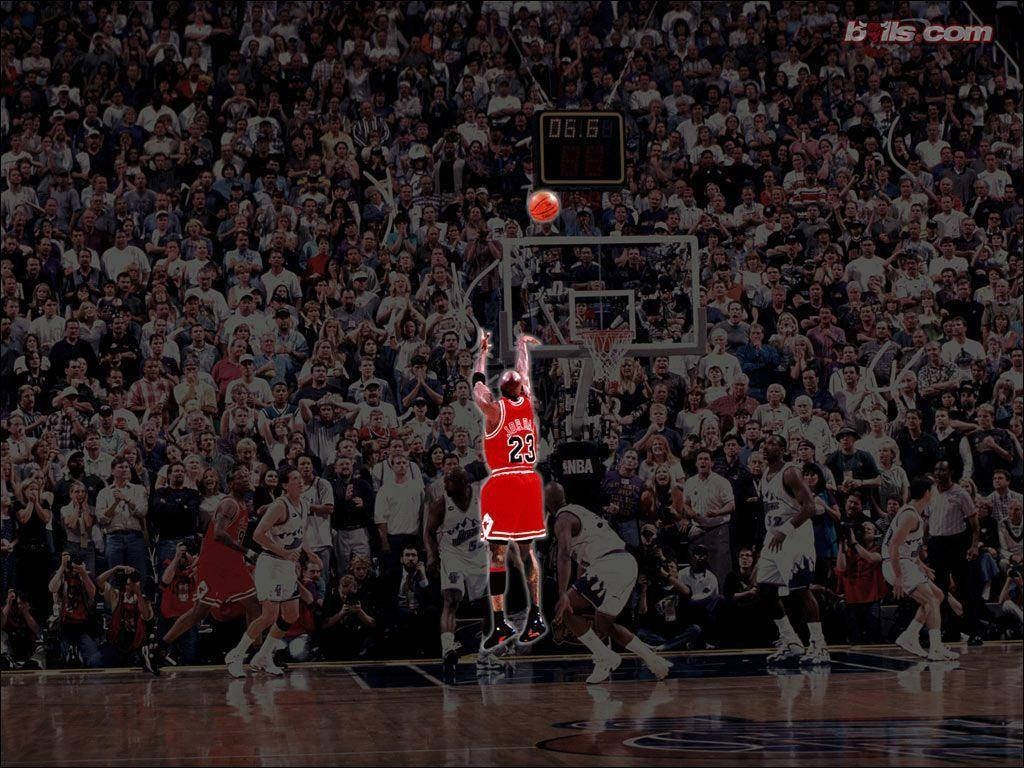
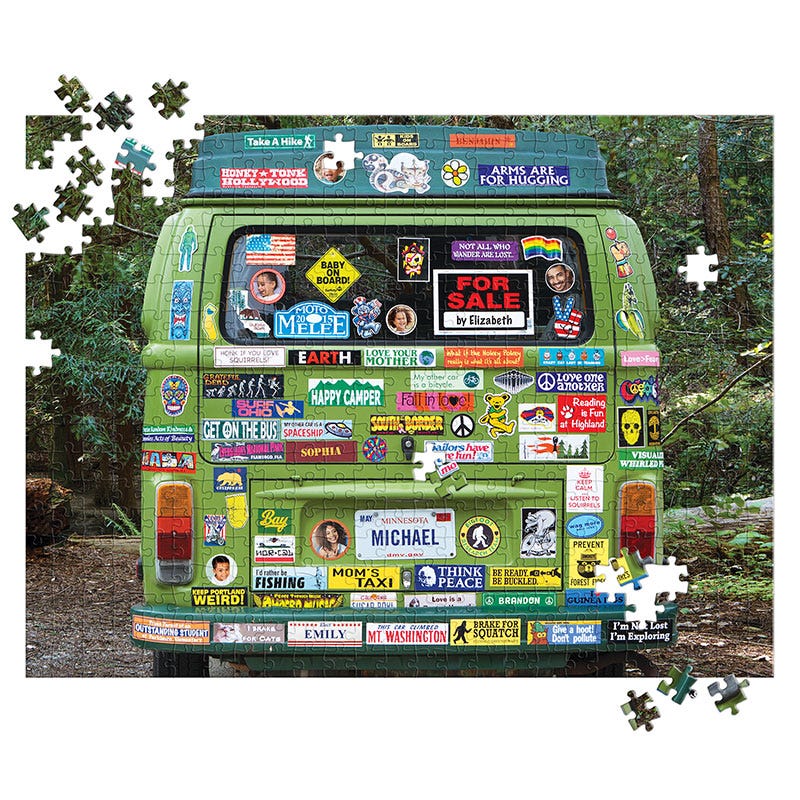

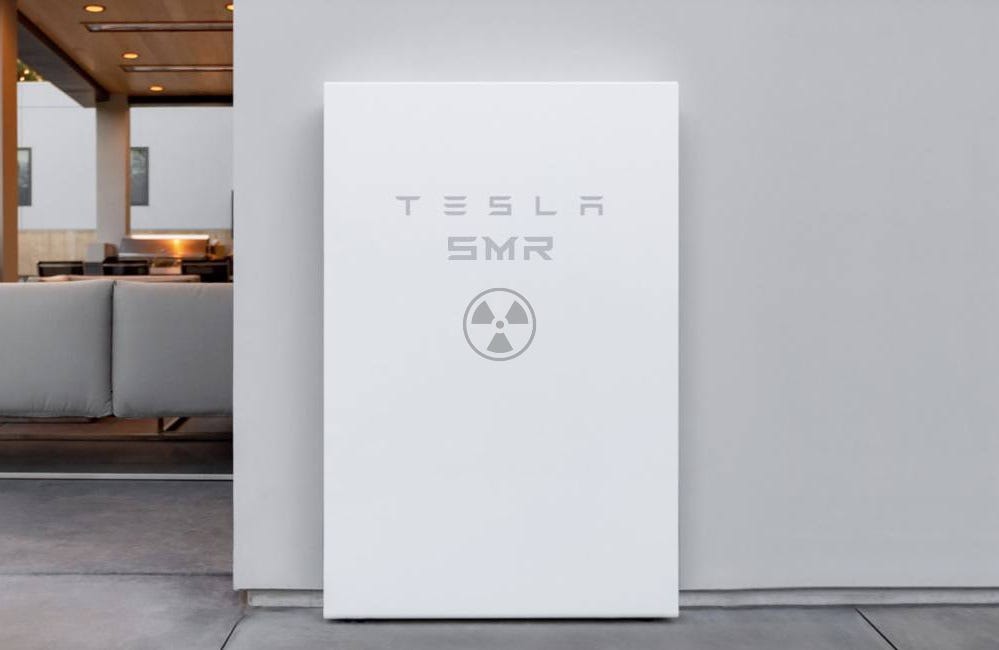



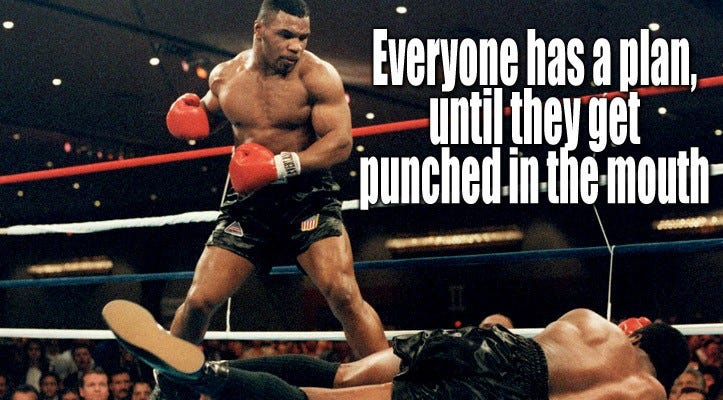

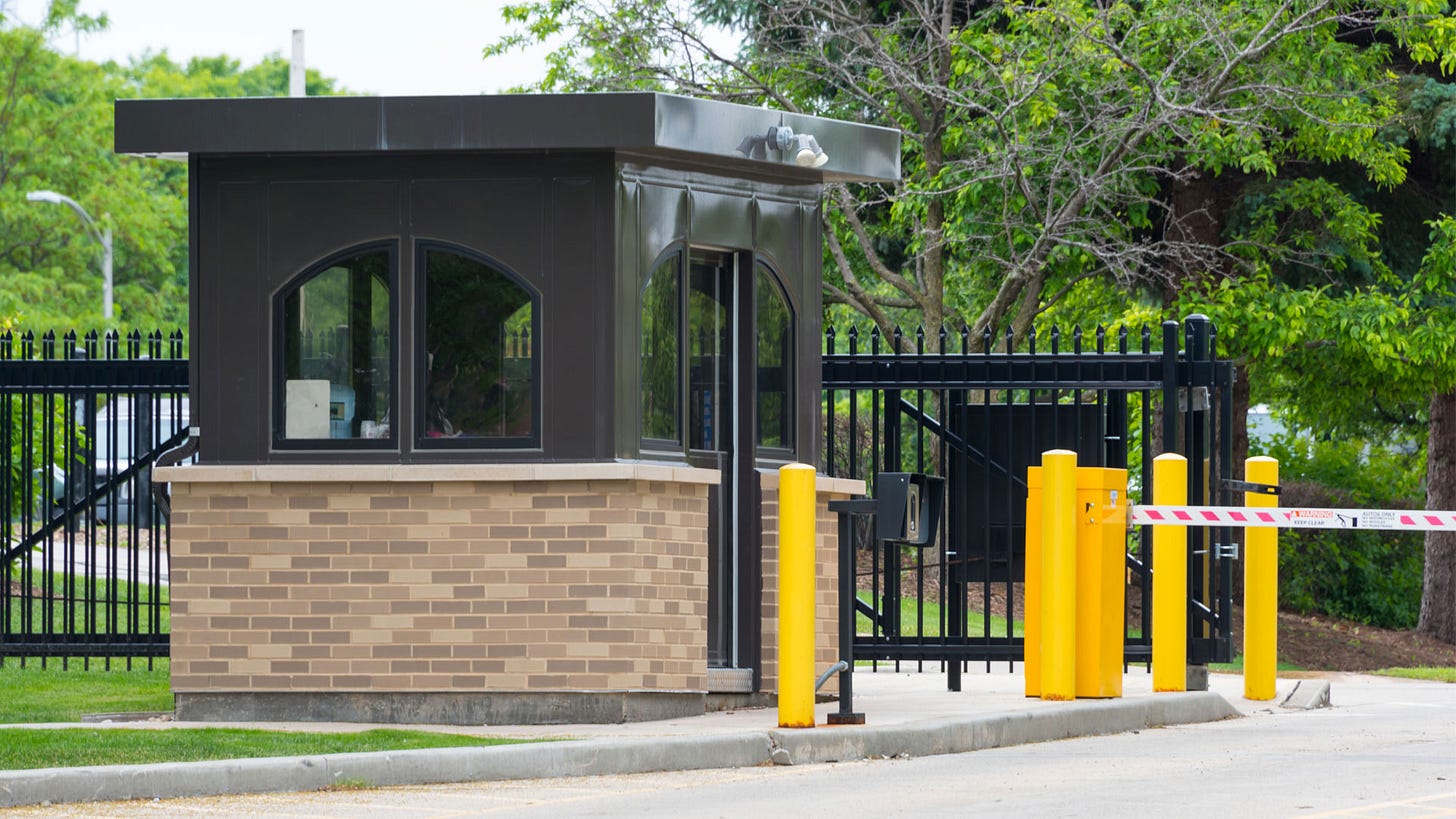
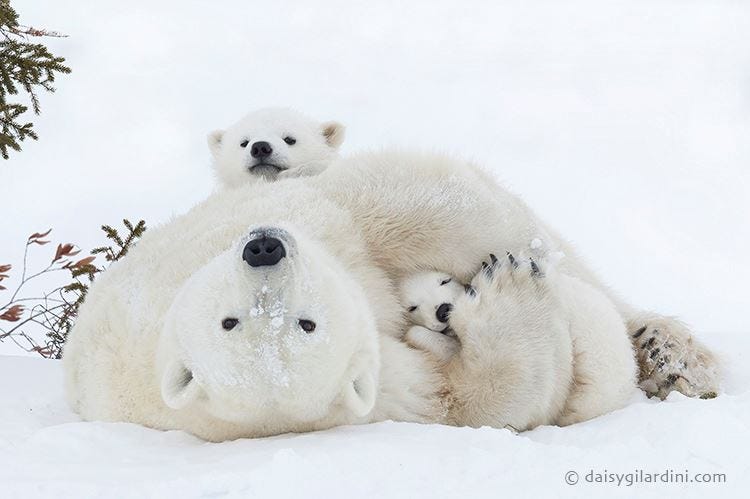
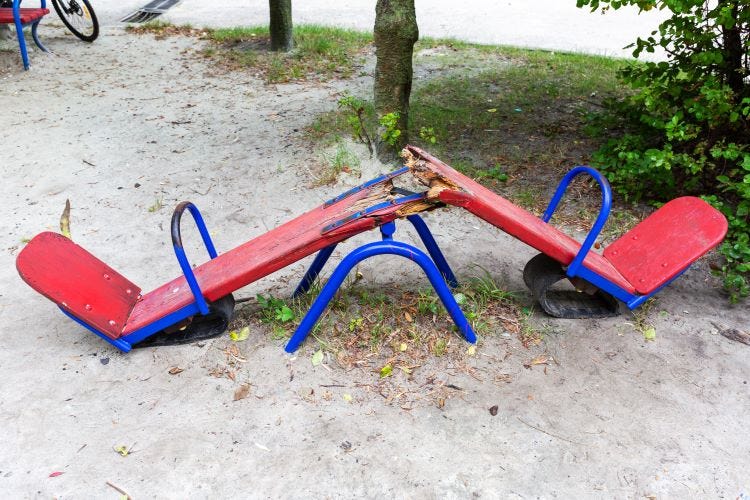

God this blog is amazing. I always feel I am able to see the middle of all these conflicting narratives at once when I read what you are sharing. Thank you for this blog.
I like how you ended it, with the bad clothing bit, I think that's the right orientation.
Decomplexification, or as Nate Hagens calls it, the Great Simplification.
Local/Bioregional solutions, Mutual Aid, Barn Raising.
The only way out is through, so rig for heavy seas.
The good news is, humans are resourceful and like to cooperate, once the big things break.